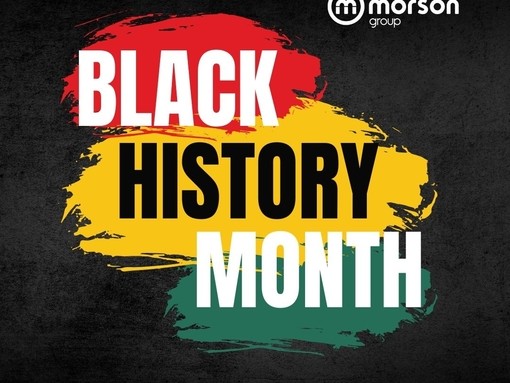
Diversify or die: Inclusion is key to the survival of UK manufacturing
Make UK, the Manufacturer’s Organisation, is helping the sector engineer a diverse, digital and green future.

It aims to help the manufacturing business change, adapt and transform to meet the future needs of the UK economy, and commits to leading the way in understanding and supporting all aspects of equality, diversity & inclusion.
Their recent report, Manufacturing Our Recovery Through Inclusion, offers a detailed analysis of the state of the manufacturing industry at present and offers advice and guidance on how the industry much address the challenges of the future through embedded ED&I strategies.
The survival of the manufacturing sector relies on equality, diversity and inclusion being embraced across all organisations of all sizes. Not only does this help widen the talent pool for potential hires, it also fosters a sense of belonging and empowers teams to greater productivity and engagement.
We take a look at the report’s key takeaway points:
Removing the legacy of old manufacturing: The state of the market
The Covid-19 pandemic was a catalyst for change that was already on the way. Throughout the lockdowns, there was a diverse nation of manufacturing personnel across the supply chain working around the clock to ensure PPE, ventilators, food and other supplies were created and distributed with minimum disruption. A key factor in building the diverse cultures of the future is removing the legacy of ‘old manufacturing’ and what that entails, and the events of the pandemic have gone a long way to spotlighting that.
Currently, just under a third of employees within the manufacturing space are female, 70% are male and around 1% are non-binary, gender fluid or prefer to self-describe. However, only 8% of women occupy white collar or specialised engineering roles within manufacturing, much lower than the UK average for these types of roles. This is despite the number of women entering STEM courses at university rising some 8% to just over 40%.
As well as gender-based inequality at senior, professional or board level, efforts must me made to address both gender and ethnic inequality in entry-level jobs. Make UK’s research reveals that jut 8% of apprentices in the industry are female, and only 4% are from a Black, Asian and Ethnic Minority (BAME) background.
Ensuring the removal of the stigmas associated with manufacturing culture is crucial to attracting a diverse workforce, which in turn opens up a wider talent pool from which businesses can grow. By 2025, over two-thirds of the global workforce will be made up of Gen Z and millennials, who expect their workforces to be diverse and inclusive –embedding acceptance, inclusivity and innovation into company culture is essential.
The business case: diverse people at the heart of organisations
Placing a diverse and equal workforce at the heart of any business is key to success. As well as cultural and economic benefits , there’s a legal compulsion: the Equality Act of 2010 prohibits the discrimination and unfair treatment of people on the grounds of: age, disability, gender, marriage, pregnancy, race, religion or sexual orientation.
The business case for diversity and inclusion is clear. Diverse teams out-perform non-diverse teams over time. According to the Make UK report, businesses who embrace diversity and inclusion are 25%-36% more likely to outperform their competitors in terms of profitability, with a 30% increase in the ability for them to identify, and mitigate against, business risks. The benefits aren’t just directly financial -84% of people feel more motivated and productive when leaders are perceived to be inclusive.
This doesn’t mean that diversity and inclusion should be merely stapled onto a business to tick a box – there must be a cohesive strategy that underpins all activity within the organisation and fosters a sense of belonging in all employees. As the Make UK report states:
“ED&I is about culture not compliance.”
Diversity in smaller manufacturing businesses can be viewed as being more difficult owing to smaller employee numbers, but in reality a diverse recruitment drive can open the door to wider talent pools, mitigating against issues of losing out on talent to bigger and more established competitors.
It’s not just your business: ED&I throughout the supply chain
Businesses in the manufacturing sector are reporting that customers are increasingly introducing ED&I frameworks and responsibilities throughout their supply chains. This is beneficial as it creates a ripple effect where businesses are having to be prepared to demonstrate their commitment to ED&I in real evidential terms – not just through potentially hollow pledges, forcing more companies to take real steps to embed ED&I practices in their business. Failure to do so could see a loss of existing and future business
Morson: Our EDI responsibility
As gatekeepers to the world of work, Morson have a responsibility to engage diverse talent pipelines, enable opportunities for all and educate organisations on how create and harness inclusive cultures.s a proud equal opportunities employer for candidates and colleagues alike, we understand the complexities associated with widening participation within businesses and fostering diverse cultures.
We partnered with ReciteMe to kick-start our accessibility journey by adding their accessibility software to our website. This has allowed us to open up our content and job listings to a vastly increased audience through a suite of tools, including solutions for visitors with dyslexia, visual impairment and learning difficulties.
Our Inclusive Role Models series showcases inspirational stories from people across a variety of industries. The relatable role model stories inspire, break down barriers and encourage a wider talent pool to embrace the opportunities available to them in multiple sectors. Add a link to Sian’s piece
As well as spotlighting the successes of our role models, we’re also committed to real, tangible change across our client base.
As recruitment experts with over 50 years of experience across multiple sectors including manufacturing, our ED&I consultancy services are designed to help our clients attract diverse talent into their organisations and help identify barriers to inclusion within their recruitment processes. Through our knowledge and partnerships, we help design talent processes which enrich relationships, build understanding and shape behaviour – delivering better business.
Our ED&I steering group, spearheaded by head of client engagement Samantha Price, works collaboratively with several industry-leading partners, including Stonewall, Northern Power Women, EqualEngineers, The Girls’ Network and ReciteMe, to understand the challenges of a diverse candidate audience.
For more information about our ED&I consultancy service, email Samantha Price (sam.price@morson.com) or visit the Morson Group website here
Search our latest jobs in manufacturing here
















